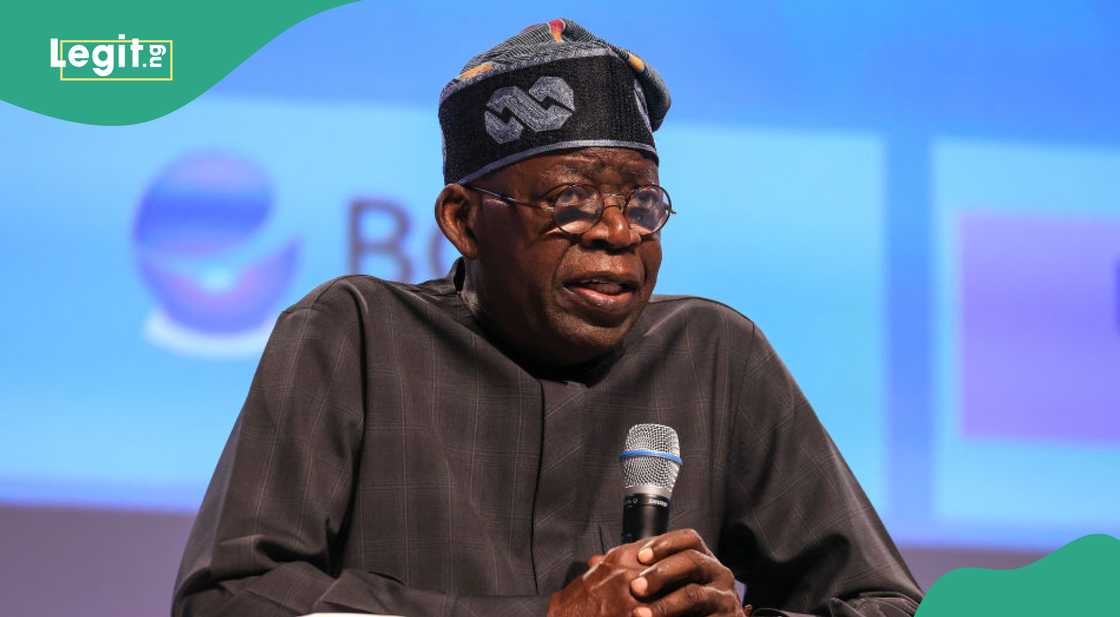Nigeria Tax Bill 2024: A Comprehensive Framework for Taxation
- Tax experts have stressed the importance of the Tax Bill 2024, which President Bola Tinubu’s government proposes
- The Nigeria Tax Bill 2024 is a turning point in the country’s approach to fiscal policy
- The bill also aims to promote ease of doing business, which has long been a hurdle in Nigeria’s economic growth
President Bola Ahmed Tinubu has moved to revolutionise Nigeria's tax administration. He has submitted four groundbreaking tax reform bills to the House of Representatives for approval.
The Nigeria Tax Bill 2024 is a turning point in the country’s approach to fiscal policy. As Nigeria’s economy changes, this proposed legislation represents more than another tax reform. It’s a major revamp of the country’s tax system that fits into President Bola Ahmed Tinubu’s Renewed Hope agenda.

Source: Getty Images
The bill promotes a vision for a more robust, transparent economy, and its success will make a big difference in Nigeria’s future.

Read also
No more grid collapses: Jeff Bezos, Rockefeller move to invest in Nigeria’s electricity industry
The Nigeria Tax Bill tackles a long-standing problem
Nigeria has one of the most complicated and confusing tax systems. By bringing all tax laws together into one clear framework, the bill simplifies the rules and combines different taxes, making it easier for businesses and people.
PAY ATTENTION: Legit.ng Needs Your Help! Take our Survey Now and See Improvements at LEGIT.NG Tomorrow
This is not just a reform for the sake of change; it aims to create a fairer and more transparent tax process, promoting a better relationship between the government and taxpayers.
The bill also aims to promote ease of business, which has long been a hurdle in Nigeria’s economic growth. Businesses, tiny and medium enterprises (SMEs), have historically struggled with the complex web of tax regulations.
The Nigeria Tax Bill 2024 simplifies compliance by streamlining tax rules. This enables businesses to focus more on innovation and expansion rather than wading through bureaucratic red tape, creating a more conducive environment for entrepreneurship and investment.
For years, tax administration in Nigeria has been plagued by inconsistencies and unclear guidelines, resulting in confusion, disputes, and a lack of trust between taxpayers and the government.
However, since Dr. Zacch Adedeji became the Executive Chairman of the Federal Inland Revenue Service, improvements have been made, leading to a more effective and transparent agency.
New Tax bill brings simplicity to the system
The Tax Administration Bill aims to simplify tax collection and clarify tax laws. It seeks to reduce taxpayer challenges and disputes with the government. Making procedures more transparent will help taxpayers understand their responsibilities and improve compliance. The bill also encourages using technology to make tax processes more accessible and efficient for everyone.
The Joint Revenue Board (Establishment) Bill creates a new way to handle tax disputes with tribunals and a tax ombudsman, promoting fairness in the tax system. For the first time, Nigerians will have official channels to voice their concerns and hold tax authorities accountable.
This step toward bringing transparency and trust to tax administration will benefit the government and the general public.
Another major reform is the Nigeria Revenue Service (Establishment) Bill, replacing the old Federal Inland Revenue Service Act. This change goes beyond surface-level updates; it modernises revenue collection to meet the needs of today’s Nigeria.
The new framework will help the government use technology more effectively, improve tax collection, reduce losses, and properly track all tax money. This is important for enhancing public infrastructure, social services, and the overall quality of life in the country.
These reforms reinforce fiscal institutions, stimulate economic growth, and align with the government’s objectives.
President Tinubu is sending a strong message to the world that Nigeria is open for business and fully committed to fiscal responsibility. Kudos to such foresight, AKANBI! With Tinubu's vision, it’s hard not to #BelieveInPBAT. Nigeria is making giant strides toward economic prosperity. Even if you have reservations about him, you must appreciate the zest, guts, and energy he brings to this vital mission.
Adedeji’s Impact on FIRS
The Tax Boss stands out as a leader in Nigeria, leading an agency that truly delivers results. In his first year, he has driven forward-thinking reforms prioritising technology and data-driven decisions.
Under his leadership, the Federal Inland Revenue Service (FIRS) is evolving from a traditional tax agency into a modern, innovation-focused institution with research at its core. His approach to integrating innovation into tax administration is remarkable, not just ideas on paper but fundamental, practical changes that make tax processes more accessible for businesses and people.
Working alongside the Minister of Finance, Mr Adebayo Olawale Edun, Dr Zacch shows the government’s commitment to tax reform. These new bills make taxes easier to understand, boost transparency, and support economic growth. With capable leaders like Dr Zacch and guided by President Tinubu's Renewed Hope Agenda, Nigeria is proving to the world that it’s ready to build a robust and lasting economy that benefits everyone.
Analyst praises FIRS Boss as agency surpasses revenue
Legit.ng earlier reported that the FIRS had exceeded its revenue target for the first quarter of 2024, drawing praise from analysts who credited the achievement to FIRS Chairman Zacch Adedeji's approach.
The tax agency reported a collection of N3.94 trillion in the first quarter of 2024, reflecting a 56% increase compared to the same period in 2023.
Adedeji, who took office in September 2023, had promised to implement strategic reforms driven by technology.
PAY ATTENTION: Сheck out news that is picked exactly for YOU ➡️ find the “Recommended for you” block on the home page and enjoy!
Source: Legit.ng






